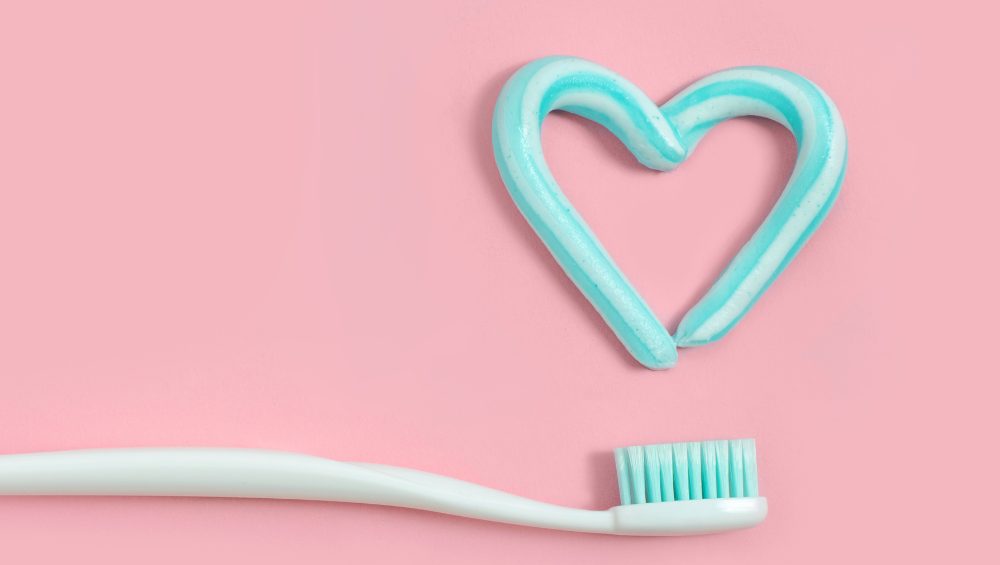
Benefits of Invisalign: Our Guide
December 29, 2022
How Dental Health Can Impact Your Heart?
January 25, 2023Key Takeaways:
Therapy for Facial and Mouth Muscles:
Myofunctional therapy involves exercises to improve muscle function in the face and mouth, addressing issues like snoring, tongue thrusting, and mouth breathing.
Benefits for Children and Adults:
It helps correct imbalances in muscle function, aiding in better speech, swallowing, and nasal breathing.
Multi-Disciplinary Approach:
The therapy involves collaboration with various health professionals and focuses on promoting overall health, especially for those with oral dysfunctions.
If you or your child have trouble talking, breathing, or swallowing, then someone may have suggested myofunctional therapy. The first thing that popped into your head was probably, what is myofunctional therapy? After all, many people still don’t know about this treatment option.
In short, think of myofunctional therapy as physical therapy for the muscles in your mouth and face, including your tongue. Healthline reports it can be applied to help with snoring or sleep apnea, speech problems, trouble eating, tongue thrust, mouth breathing, and other disorders.
Many people take breathing, eating, speaking, and swallowing for granted unless they have trouble. Every day we rely on the muscles in the face, mouth, and neck to work together seamlessly without thinking about it.
The medical community is just starting to understand the potential impact of myofunctional therapy. This article is an overview for educational purposes, not a substitute for medical advice. The therapy is carefully tailored to the individual, so to learn more, see a dental or medical professional with myofunctional therapy training.
Myofunctional Therapy for a Variety of Conditions
According to the Academy of Orofacial Myofunctional Therapy, many of these mentioned issues originate from breathing problems. Mouth Breathing, in particular, is a common symptom that may have different causes. One issue might be a blockage to the nasal system, while others may be the result of habits developed from infancy or muscle imbalances.
Breathing through the mouth is an effective way to take in more oxygen when you are exerting yourself, such as while sprinting. However, doing so all the time may lead to oral health issues and other health problems. Some of these related conditions include:
- Dry mouth that may contribute to gum disease and tooth decay.
- The tongue may push teeth out of alignment through frequent and constant pressure.
- Muscle imbalances may lead to unpleasant facial expressions as well as poor facial development in the case of children.
- Trouble speaking, learning to talk, or pronouncing words.
- Snoring, sleep apnea, and other possible heart and lung problems as an eventual result.
As the Academy of Orofacial Myofunctional Therapy states, “Correct swallowing depends on a proper relationship between muscles of the face, mouth, and throat.” Myofunctional therapy seeks to develop a cooperative working relationship among these muscles through a program of carefully selected exercises.
Given all the ways these muscle imbalances or other problems may harm health and development, it makes sense that a variety of allied health professionals share an interest in myofunctional therapy. It’s a multi-disciplinary approach.
The American Speech Hearing Language Association (ASHA) recognizes that Orofacial myofunctional disorders, or OMDs, in children and teens get in the way of healthy development, growth, and learning speech.
Myofunctional therapy uses exercises to promote muscle balance and diminish bad habits like tongue thrusting or thumb sucking.
The Importance of Nasal Breathing
Issues with mouth breathing often start during childhood. In extreme cases, it may impact an infant’s ability to nurse or a young child’s ability to eat. In less severe cases, a parent may notice it but not realize it may lead to or be a symptom of more severe problems.
The causes of chronic mouth breathing vary, including:
- Asthma
- Infection anywhere in the respiratory system
- Allergies, including food allergies
- Nasal polyps
- Enlarged adenoids or inflamed tonsils
- Nasal congestion
- Deviated septum
- Other structural issues in the nose, sinuses, or throat
Nasal breathing is ideal for a few reasons. Your nose filters the air before it enters your lungs, so you get less debris and fewer viral particles entering your body. Breathing through the nose supports your immune system and overall health.
Sometimes people are surprised to learn of another benefit to breathing through the nose. When we do, our nasal passages and sinuses produce Nitric oxide, which helps widen our blood vessels and prevent inflammation, according to studies. Breathing through the mouth too much may even contribute to eventual heart problems.
Not only that, but a preference for breathing through the mouth may indicate a problem with the sinuses or facial structure. For children, it is especially important to identify whether a structural problem causes it so the cause can be treated before it interferes with healthy development. The issues for adults are also serious, and resolving them can lead to better health and quality of life.
Sometimes people prefer mouth breathing out of habit, but this can often be addressed through breathing exercises and other therapeutic treatments, including mouth taping. Even if the cause was originally illness or a structural issue, muscle imbalances might have developed, making it harder to breathe and swallow normally.
Goals of Myofunctional Therapy
The main goal is to develop balanced muscle function and use facial and mouth muscles. This helps promote the following:
- Breathing primarily through the nose except during short bursts of extreme exertion.
- Healthy swallowing response.
- Resting the tongue correctly on the roof of the mouth instead of subconsciously thrusting it against the teeth.
Myofunctional therapists work with the patient as an individual since the human body is complicated. Unlearning habits is hard, especially those we are not even conscious of.
Next Steps: Schedule an Appointment
The first step is to schedule an appointment with a myofunctional therapist. Chances are you may have first learned about this option from a dentist, respiratory therapist, or other allied professionals. They may offer the treatment or be able to recommend a skilled therapist.
If you live in Charlotte, Southview Dentistry’s own Dr. Kelly Wilson is a myofunctional therapist as well as a dentist. It’s part of Southview’s mission to treat the whole patient, as our oral health is often tied to other aspects of our overall health.
Contact us today if you or a family member struggle with mouth breathing or one of the many other OMDs that impact health and quality of life. It all starts with a consultation where our therapist identifies possible causes and comes up with a custom treatment plan and exercises to address the issues.




